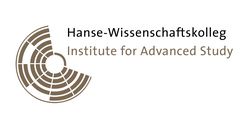Working memory training
Working memory training
Working memory training as a clinical tool to improve WM capacity and attention in everyday life
Fr. 11.30-12.30 Uhr
Torkel Klingberg, MD PhD, Professor in Cognitive Neuroscience
Karolinska Institute, Stockholm, Sweden
Working memory (WM) is the ability to temporary store and manipulate information. The neural mechanisms of visuo-spatial WM are to a large extent identical to those of controlled, or top-down, attention. The similarities between WM and attention is also evident from behavioral studies. In particular are the inattentive symptoms of ADHD associated with deficits in WM capacity. It is also these inattentive symptoms and WM deficits that are the strongest predictors of academic failure in children and adolescents with ADHD.
It was previously assumed that WM capacity was a fixed characteristic of the individual. However, research first carried out by Klingberg and collaborators have shown that intensive training on WM tasks over several weeks can enhance performance also on non-trained WM tasks. This training is also is associated with improvement in attention as measured by standard neuropsychological tasks, but also ecologically more relevant tasks, such as tests of the ability to remember and carry out instructions. Studies using this method has mostly had smaller group sizes (<75) and there are both positive findings as well as studies not finding significant effect. A recent meta-analysis of 12 studies using the same WM training method, suggest that WM capacity is increased with an effect size of around 0.7. Attention, as measured with rating scales (DSM-IV, CFQ, etc), is improved with an effect size of 0.5. Both effects are highly significant (p < 0.0001).
The neural basis of training is presumably related to the plasticity of prefrontal and parietal cortex and the basal ganglia. Studies with positron emission tomography, as well as genetic studies, has implicated dopaminergic transmission as a key factor in this plasticity.
WM training is an experimental paradigm to study cognitive plasticity, but is also clinically useful in order to improve WM and attention in everyday life of individuals with impaired WM and inattention.



